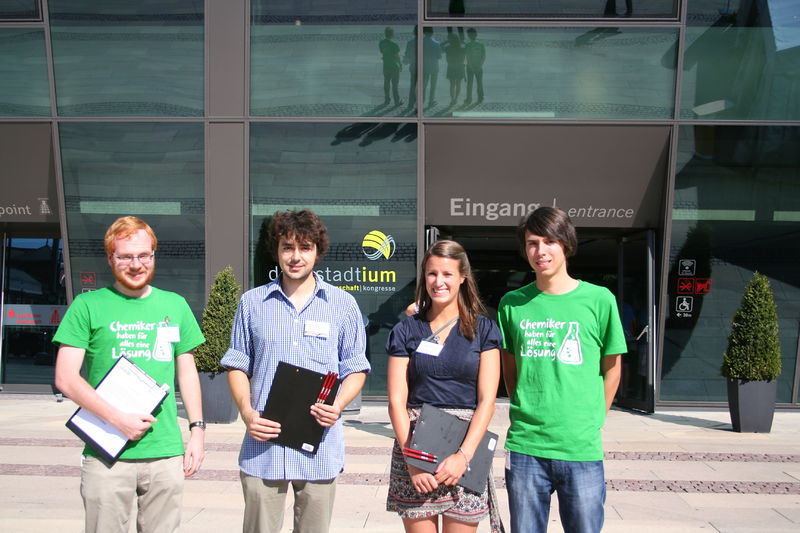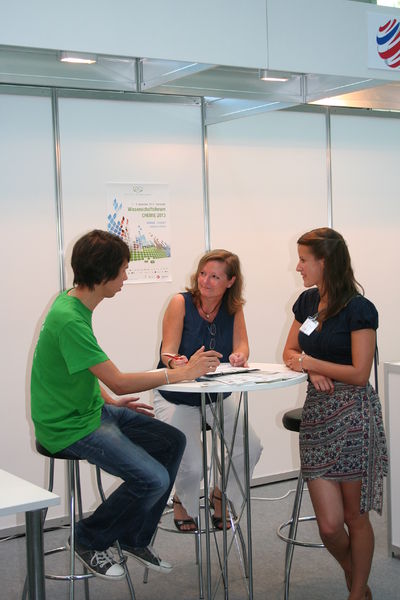Team:TU Darmstadt/humanpractice
From 2013.igem.org
Idea
The goal of our iGEM-Project is to develop a 
These concerns can be very serious and grave especially when the topics GMOs and food products come together. To improve our project we decided to evaluate the concerns 
In order to reach a large crowd of people differing in age, education, origin, gender and attitude towards genetic engineering, we did not focus on a specific audience. To ensure variability in our audience we addressed them in two different ways. On the one hand we published our questionnaire online via different social media and thereby addressed people anonymously. On the other hand we also approached the audience personal and asked them to participate in our survey.
Therefore we visited the WiFo 2013. This is the annual meeting of the German Chemists Society GDCh, the biggest society of chemists in Germany. With over hundreds of visitors from the scientific world this was the ideal place to discuss our project and gather with people to share ideas. We were able to hand our questionnaire to everybody, starting at pupils visiting the WiFo on pupil’s day, to scientists from similar fields as our project. We got great feedback on our ideas and questionnaire from everybody we talked to. Both university and industry were along our guests to find out the influence of our project in dealing with typical prejudices on genetically engineered organisms. We were able to gather the information we needed for our evaluation and we could also meet scientific contacts to get the possibility to lay the focus on our project. We want to thank the people of GDCh for this great opportunity.
 "
"